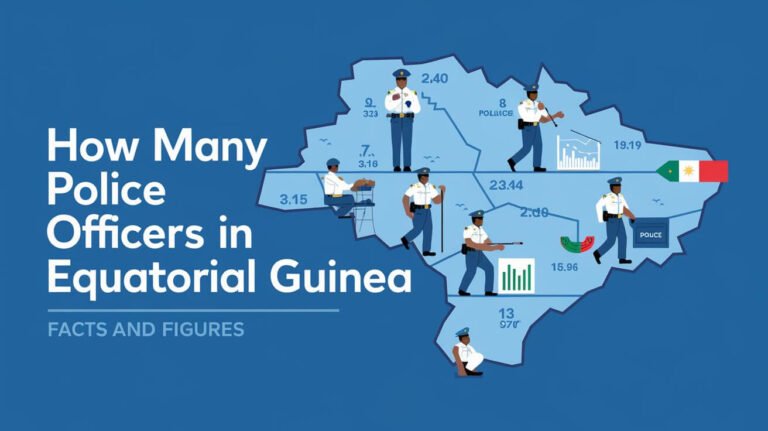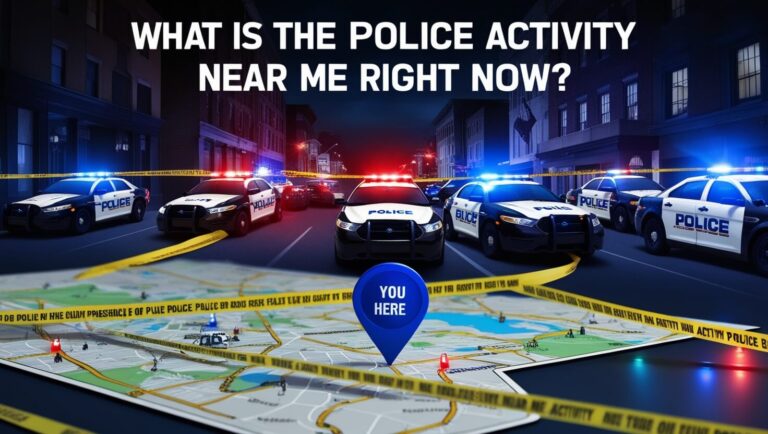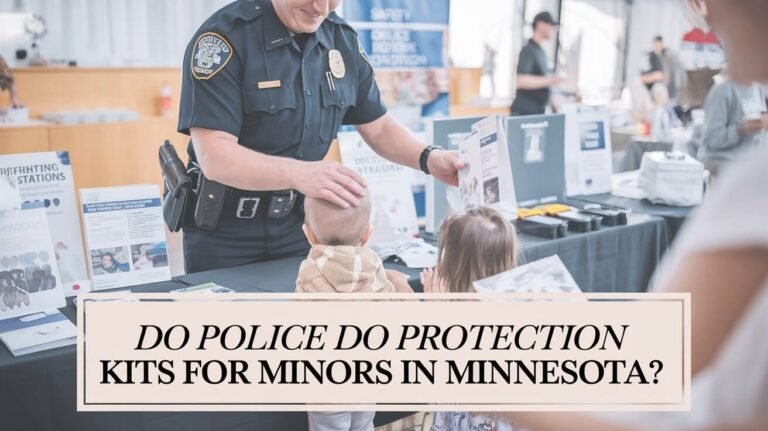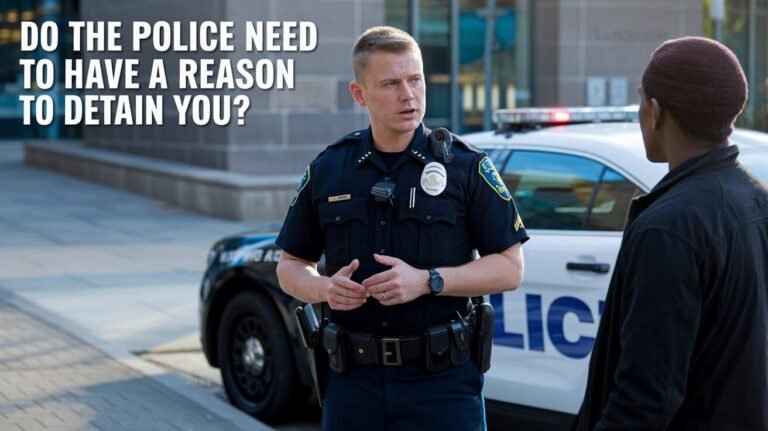Can Police Pull You Over for No Reason? Understanding Your Rights on the Road
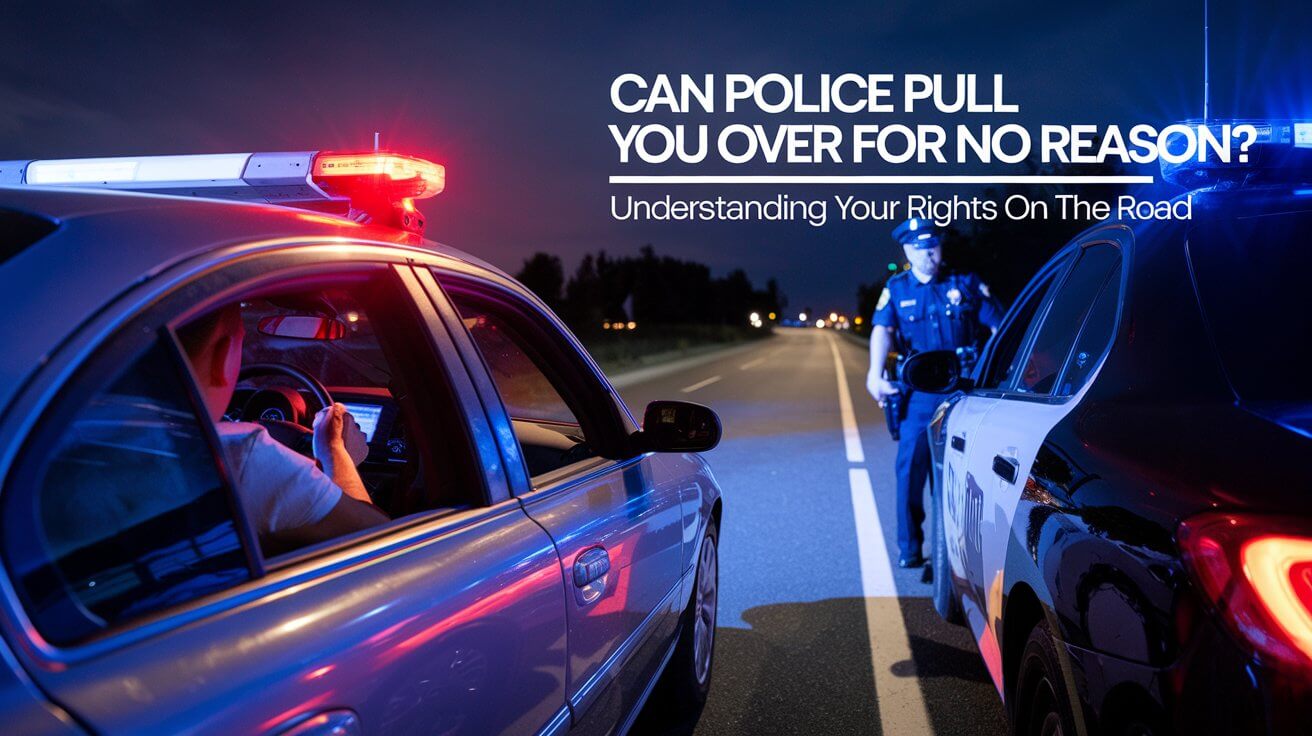
Traffic stops are a common part of everyday life in America. But many drivers wonder: can police pull you over for no reason? The short answer is no, but the reality is more complex. Police need a valid reason to initiate a traffic stop, but what counts as “valid” might surprise you.
This guide digs into the laws around traffic stops, your rights as a driver, and what to do if you think you’ve been pulled over unfairly. We’ll cover everything from Supreme Court rulings to practical tips for handling a stop.
The Legal Framework Behind Traffic Stops
To understand why police can’t just pull you over on a whim, we need to look at the legal foundations of traffic stops in the U.S.
The Fourth Amendment and Reasonable Suspicion
The Fourth Amendment protects Americans from unreasonable searches and seizures. This includes traffic stops, which courts consider a type of “seizure.”
For a stop to be legal, an officer needs “reasonable suspicion” that a crime or traffic violation has occurred or is about to occur. This is a lower standard than “probable cause,” but it still requires specific, articulable facts – not just a hunch.
Terry v. Ohio: The Landmark Case on Police Stops
The 1968 Supreme Court case Terry v. Ohio set the standard for police stops. It ruled that police can briefly detain someone if they have reasonable suspicion of criminal activity. This principle extends to traffic stops.
Recent Supreme Court Rulings on Traffic Stops
In 2014, the Heien v. North Carolina case added a twist. The Supreme Court ruled that if an officer makes a “reasonable mistake of law” when pulling someone over, the stop can still be valid. This gives police some leeway in interpreting traffic laws.
What Constitutes a Valid Reason for a Traffic Stop?
Now that we know police need a reason to pull you over, let’s look at what reasons are considered valid.
Common Traffic Violations That Justify Stops
The most straightforward reasons for a traffic stop are observable traffic violations. These include:
- Speeding
- Running a red light or stop sign
- Failing to use turn signals
- Driving with expired tags
- Erratic or reckless driving
Suspicion of Criminal Activity
Police can also pull you over if they suspect you’re involved in criminal activity. This might be based on:
- Matching the description of a suspect
- Driving in a manner consistent with intoxication
- Suspicious behavior observed by the officer
Equipment Violations and Vehicle Defects
Your car itself can give police a reason to pull you over. Common issues include:
- Broken tail lights or headlights
- Cracked windshield
- Excessively tinted windows
- Loud exhaust
Myths vs. Reality: When Can Police Actually Pull You Over?
Let’s bust some common myths about traffic stops and clarify what police can and can’t do.
The “No Reason” Myth Debunked
Despite what some believe, police can’t legally pull you over for absolutely no reason. They need at least reasonable suspicion of a violation or crime. However, the bar for reasonable suspicion is lower than many people think.
Pretextual Stops: When Minor Violations Lead to Bigger Investigations
Sometimes, police use minor traffic violations as a pretext to investigate other suspicions. For example, they might pull someone over for a broken tail light if they suspect drug activity. Courts have generally upheld these “pretextual” stops as legal.
DUI Checkpoints: A Special Case
DUI checkpoints are an exception to the rule that police need individualized suspicion to stop you. The Supreme Court has ruled that the public safety benefit of these checkpoints outweighs the intrusion on drivers.
Your Rights During a Traffic Stop
Knowing your rights can help you navigate a traffic stop safely and protect your legal interests.
What You’re Required to Do When Pulled Over
When you’re pulled over, you must:
- Stop your vehicle in a safe place
- Provide your driver’s license, registration, and insurance information
- Step out of the vehicle if the officer asks you to
What You’re Not Obligated to Do
You’re not required to:
- Answer questions about where you’re going or what you’ve been doing
- Consent to a search of your vehicle
- Perform field sobriety tests (though refusing may have consequences)
- Incriminate yourself
Recording Your Interaction with Police
In most states, you have the right to record your interaction with police during a traffic stop. However, inform the officer you’re recording and don’t interfere with their duties.
Questionable Reasons for Traffic Stops
Sometimes, the reason for a traffic stop might be legally questionable or even discriminatory.
Racial Profiling and Biased Policing
Racial profiling in traffic stops is illegal, but it still happens. Studies have shown that Black and Hispanic drivers are more likely to be pulled over than white drivers.
Anonymous Tips and Their Validity
Police can act on anonymous tips, but these tips alone usually aren’t enough to justify a stop. The tip needs to be reliable and provide specific information about illegal activity.
Police Mistakes and Misunderstandings of the Law
As mentioned earlier, the Heien v. North Carolina case allows for some police mistakes. If an officer reasonably misunderstands a complex traffic law, the stop might still be considered valid.
Consequences of Illegal Traffic Stops
If a traffic stop is found to be illegal, it can have significant legal consequences.
The Exclusionary Rule: When Evidence Gets Thrown Out
Under the “exclusionary rule,” evidence obtained from an illegal stop can’t be used in court. This can lead to charges being dropped or cases dismissed.
Civil Rights Violations and Legal Recourse
If your rights were violated during a stop, you might have grounds for a civil rights lawsuit against the police department or individual officers.
Impact on Subsequent Criminal Charges
An illegal stop can taint any evidence found afterward. Even if police discover serious crimes, charges might be dismissed if the initial stop was unlawful.
How to Handle a Potentially Unlawful Stop
If you believe you’ve been pulled over without cause, here’s how to handle it:
Staying Calm and Cooperating Safely
Stay calm and follow basic safety procedures. Pull over safely, keep your hands visible, and be polite. Don’t argue about the legality of the stop on the scene.
Documenting the Encounter
If it’s safe to do so, record the interaction or make mental notes about what happens. Get the officer’s name and badge number if possible.
When to Seek Legal Assistance
If you believe the stop was illegal or led to unfair charges, consult a lawyer. They can help you understand your rights and options.
Recent Trends and Statistics on Traffic Stops
Traffic stop practices are evolving, influenced by data, technology, and public pressure.
Racial Disparities in Traffic Stop Data
Many studies have shown racial disparities in who gets pulled over and searched. This data is driving conversations about police reform.
Technology’s Role in Modern Traffic Stops
From body cameras to automated license plate readers, technology is changing how traffic stops happen and how they’re monitored.
Police Training and Policy Changes
Some departments are changing their policies on traffic stops, focusing on safety and reducing unnecessary confrontations.
Protecting Yourself: Knowing Your State’s Specific Laws
Traffic laws can vary significantly by state. Here are some key areas to understand:
“Stop and Identify” Statutes
Some states have laws requiring you to identify yourself to police if asked. Know whether your state has such a law.
Consent to Search Laws
understand your state’s laws about vehicle searches. In some cases, refusing a search can lead to the police getting a warrant.
State Variations in Traffic Laws
What’s legal in one state might be illegal in another. If you’re traveling, familiarize yourself with local traffic laws.
The Future of Traffic Stops and Police Interactions
The landscape of traffic stops is changing. Here’s what might be coming:
Body Cameras and Accountability
More departments are adopting body cameras, which can provide crucial evidence about what happens during stops.
Reform Efforts and Community Policing Initiatives
Many communities are pushing for changes in how traffic stops are conducted, aiming to reduce bias and improve community relations.
Potential Changes to Traffic Stop Procedures
Some places are considering having unarmed officials handle routine traffic stops, reserving armed police for more serious situations.
final thoughts
While police can’t pull you over for no reason, the reality of traffic stops is complex. Knowing your rights, understanding local laws, and staying calm during interactions with law enforcement are key to protecting yourself.
Remember, the best way to avoid problems during a traffic stop is to follow traffic laws and keep your vehicle in good condition. But if you do get pulled over, knowing your rights can help ensure a safe and fair outcome.
Stay informed, drive safely, and remember that both you and the officer have the same goal: to get home safely at the end of the day.

